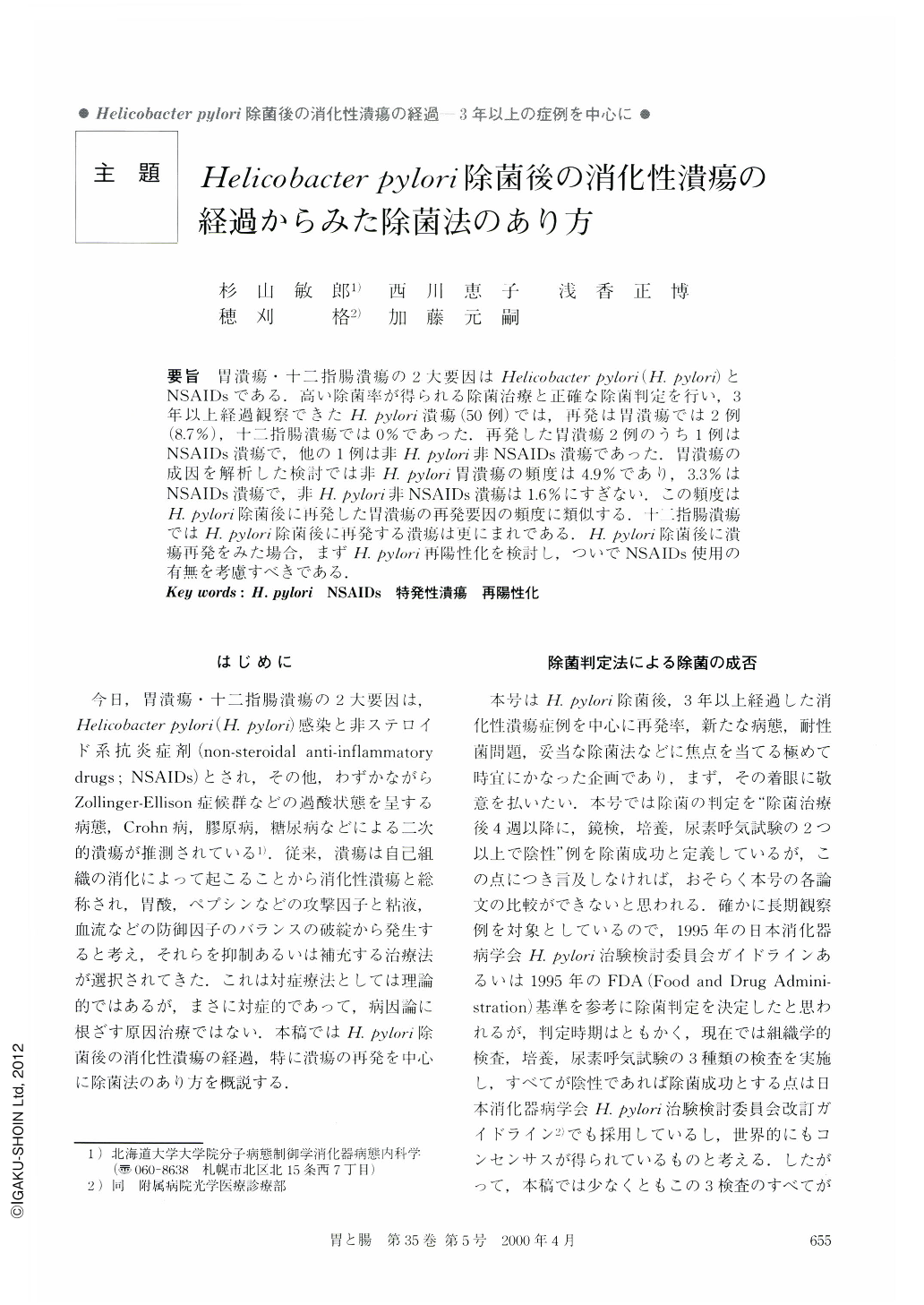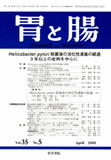Japanese
English
- 有料閲覧
- Abstract 文献概要
- 1ページ目 Look Inside
要旨 胃潰瘍・十二指腸潰瘍の2大要因はHelicobacter pylori(H. Pbllori)とNSAIDsである.高い除菌率が得られる除菌治療と正確な除菌判定を行い,3年以上経過観察できた.H. pylori潰瘍(50例)では,再発は胃潰瘍では2例(8.7%),十二指腸潰瘍では0%であった.再発した胃潰瘍2例のうち1例はNSAIDs潰瘍で,他の1例は非H. pylori非NSAIDs潰瘍であった.胃潰瘍の成因を解析した検討では非H. Pylori胃潰瘍の頻度は49%であり,3.3%はNSAIDs潰瘍で,非H. pylori非NSAIDs潰瘍は1.6%にすぎない.この頻度はH. pylori除菌後に再発した胃潰瘍の再発要因の頻度に類似する.十二指腸潰瘍ではH. pylori除菌後に再発する潰瘍は更にまれである.H. pylori除菌後に潰瘍再発をみた場合,まずH. pylori再陽性化を検討し,ついでNSAIDs使用の有無を考慮すべきである.
Major etiologic factors for gastric ulcers and duodenal ulcers are Helicobacter pylori (H. pylori) infection and NSAIDs use. When effective regimens, like the new triple therapy, are used to achieve a high eradication rate and accurate methods are used for an evaluation of eradication at the appropriate time, the relapse of gastric ulcers or duodenal ulcers is rare even after a long-term. If relapse of an ulcer is discovered during follow-up after apparent successful eradication, recrudescence of H. pylori or the use of NSAIDs should be examined. Non-H. pylori and non-NSAIDs ulcers are very rare.

Copyright © 2000, Igaku-Shoin Ltd. All rights reserved.


